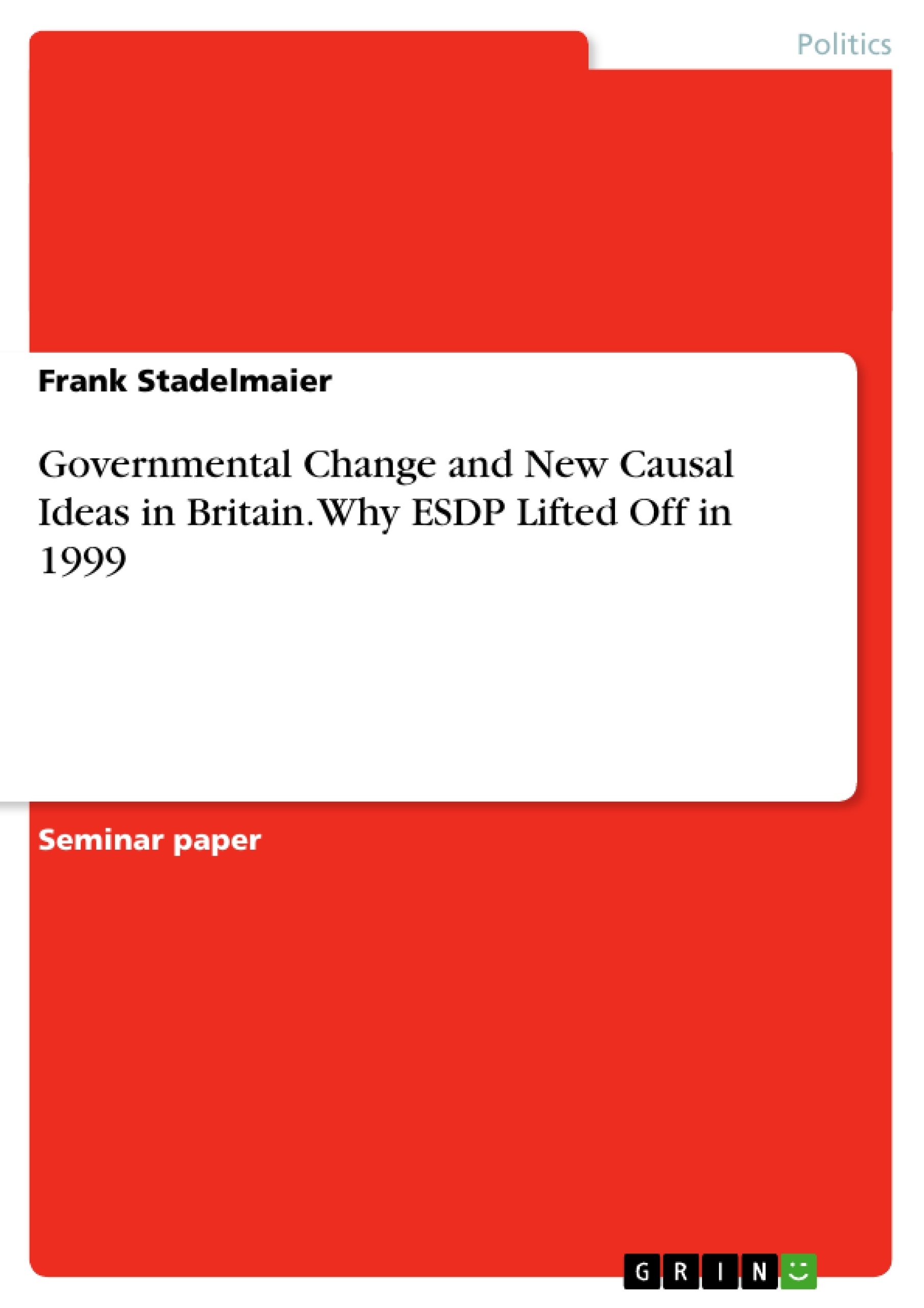A common European approach in security matters is a historical undertaking for the European Union. Why did such an approach (ESDP) materialise in 1999? Special attention has to be drawn to the role of the United Kingdom, for in the 1990s it was the one major European actor who constantly objected any steps toward European security integration. The paper identifies shifts in British domestic configurations as the main source for the subsequent preference shift in UK foreign policy. While the Kosovo crisis played the role of an external catalyst, change in government, the influence of an epistemic community, and new ideas are of deeper importance.
Inhaltsverzeichnis (Table of Contents)
- Introduction
- British preference change on Europe
- The Major government
- The Blair government
- The mechanism that led to St Malo
- New causal ideas as road maps
- The impact of an epistemic community
- The catalytic effect of the Kosovo crisis
- Alternative explanations
- Modified neorealist foreign policy theory
- Transnational constructivist foreign policy theory
- Conclusion
Zielsetzung und Themenschwerpunkte (Objectives and Key Themes)
This paper aims to explain the sudden development of the European Security and Defence Policy (ESDP) in 1999, particularly focusing on the shift in British preferences regarding European security integration. It seeks to understand why the UK, previously opposed to such integration, agreed to a common European security policy in 1998, leading to the creation of ESDP.
- Shift in British preferences on Europe
- The impact of causal ideas and an epistemic community
- The role of the Kosovo crisis
- Alternative explanations for ESDP's development
- The relationship between ESDP and NATO
Zusammenfassung der Kapitel (Chapter Summaries)
- Introduction: The paper introduces the phenomenon of ESDP's rapid development in 1999, questioning the reasons behind this unexpected shift after years of resistance to a common European security policy. It highlights the significance of the St Malo declaration and the role of the UK in this process.
- British preference change on Europe: This chapter examines the evolution of British preferences regarding European security policy, comparing the approaches of the Major and Blair governments. It highlights the significant shift in British policy under Blair, laying the groundwork for the subsequent development of ESDP.
- The mechanism that led to St Malo: This section delves into the specific causal mechanisms that facilitated the shift in British policy. It focuses on the influence of new causal ideas, the role of an epistemic community, and the impact of the Kosovo crisis in driving this change.
- Alternative explanations: This chapter explores two alternative explanations for the UK's shift in European security policy: modified neorealist foreign policy theory and transnational constructivist foreign policy theory. It examines how these theoretical perspectives contribute to understanding the process.
Schlüsselwörter (Keywords)
The paper focuses on the evolution of the European Security and Defence Policy (ESDP), specifically the British preference change on European security integration, and the role of causal ideas, epistemic communities, and external events in driving this change. It also explores alternative explanations for the development of ESDP, considering neorealist and constructivist theoretical perspectives.
Frequently Asked Questions
What is the ESDP?
ESDP stands for European Security and Defence Policy, a common European approach to security matters established in 1999.
Why did the United Kingdom change its stance on European security in 1998?
The shift was primarily driven by the change in government (from Major to Blair) and the influence of new causal ideas and epistemic communities.
What role did the Kosovo crisis play?
The Kosovo crisis acted as an external catalyst that accelerated the need for a common European security framework.
What was the St Malo declaration?
It was a pivotal 1998 agreement between France and the UK that laid the groundwork for the creation of the ESDP.
Which theoretical perspectives are discussed in the paper?
The paper explores modified neorealist and transnational constructivist foreign policy theories as alternative explanations.
- Citation du texte
- Frank Stadelmaier (Auteur), 2005, Governmental Change and New Causal Ideas in Britain. Why ESDP Lifted Off in 1999, Munich, GRIN Verlag, https://www.grin.com/document/38630



